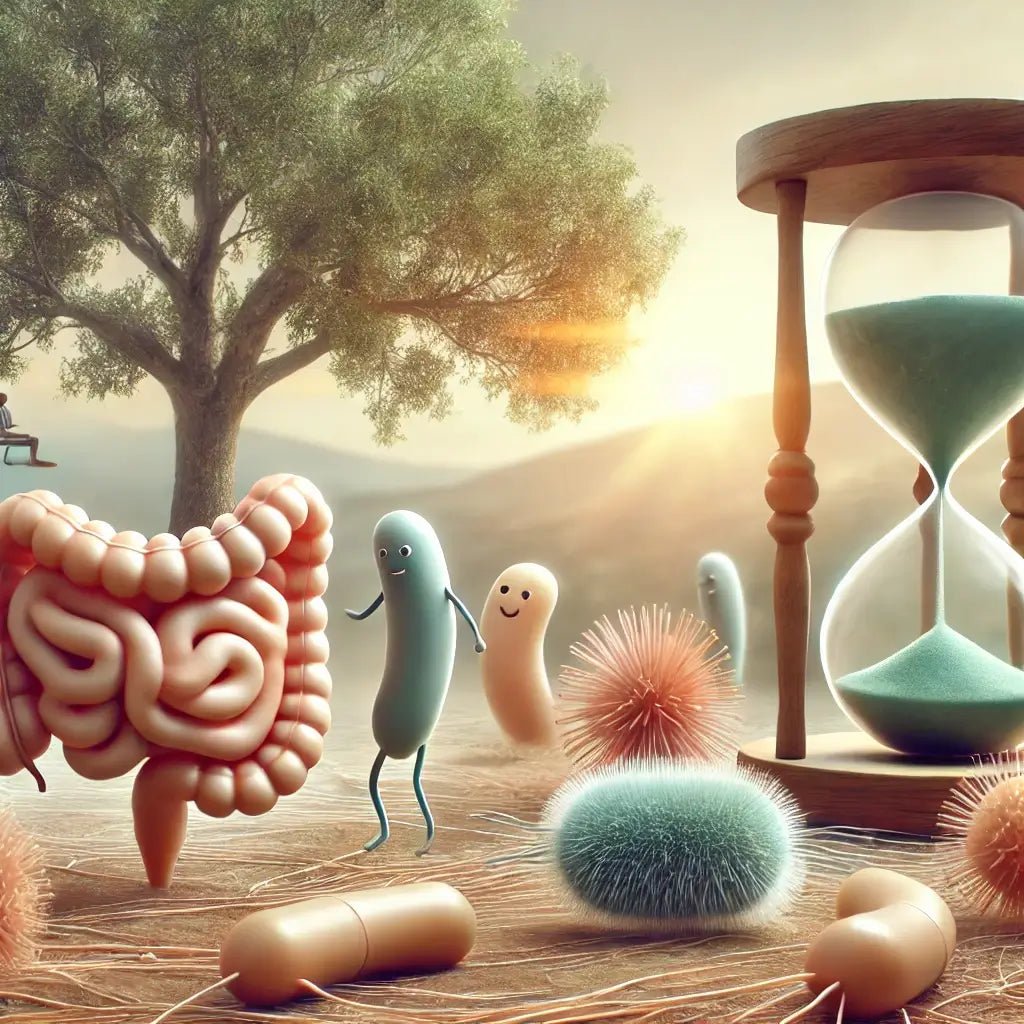The quest for longevity has fascinated humans for centuries. While genetics undoubtedly play a role, emerging research suggests that environmental factors, particularly those influencing the gut microbiome, might be key determinants of a long and healthy life.
The Centenarian Microbiome: A Blueprint for Longevity
Centenarians, those extraordinary individuals who reach the age of 100 or beyond, offer a unique window into the secrets of longevity. Their gut microbiomes, in particular, have become a focal point for scientific investigation.
A recent review delved into the intricate relationship between gut microbiota and exceptional lifespan. By examining the microbial composition of centenarians, researchers aim to identify potential protective factors that contribute to their remarkable longevity.
Inflammation: The Silent Ageing Saboteur
Chronic inflammation, known as inflammaging, is a hallmark of aging. This low-grade inflammation disrupts the delicate balance of the gut microbiome, creating an environment conducive to harmful bacteria while suppressing beneficial ones.
Centenarians appear to have mastered strategies to mitigate inflammaging, and their gut microbiomes may hold crucial clues. By studying the microbial composition of these exceptional individuals, researchers hope to uncover mechanisms that can counteract the inflammatory processes associated with aging.
The Centenarian Gut Microbiome: A Reservoir of Resilience
Research suggests that centenarians possess a distinct gut microbiome profile characterized by an abundance of beneficial bacteria. These microbes have been linked to various health benefits, including:
- Improved immune function: A robust immune system is essential for longevity. Certain gut bacteria have been shown to enhance immune responses, protecting against infections and age-related diseases.
- Enhanced metabolic health: The gut microbiome plays a vital role in digestion and nutrient absorption. Centenarians often exhibit favorable metabolic profiles, and their gut bacteria may contribute to maintaining optimal metabolic health.
- Reduced inflammation: As mentioned earlier, centenarians have effective strategies to combat inflammaging. Their gut microbiomes may play a crucial role in this process by producing anti-inflammatory compounds.
- Improved mental health: Emerging research suggests a link between gut microbiota and mental health. Centenarians' gut microbes may contribute to their overall well-being by supporting brain health.
Microbial Metabolites: The Key to Longevity?
Beyond the composition of gut bacteria, the metabolites they produce also influence health and longevity. Studies have shown that centenarians often exhibit altered metabolite profiles compared to younger individuals. Some of these metabolites have been linked to reduced inflammation, improved metabolic function, and even protection against chronic diseases.
However, the complex interplay between gut microbes and their metabolites requires further investigation. While some studies have identified potential longevity-associated metabolites, conflicting findings highlight the need for additional research.
The Road Ahead: Expanding Our Understanding
While the study of centenarian microbiomes is still in its early stages, the findings thus far are promising. Identifying the specific microbial factors that contribute to longevity could revolutionize preventive medicine and aging research.
Future studies should focus on:
- Longitudinal research: Tracking changes in gut microbiota throughout the lifespan to understand how microbial composition evolves with age.
- Intervention studies: Investigating the effects of microbiome-based interventions, such as probiotics or fecal microbiota transplantation, on longevity and health outcomes.
- Personalized approaches: Recognizing that the gut microbiome is highly individualized, developing personalized strategies to optimize gut health and potentially extend lifespan.
By unraveling the mysteries of the centenarian microbiome, we may unlock the secrets to a longer, healthier, and more vibrant life.
Optimizing Your Gut Health for Longevity
While we await further breakthroughs in microbiome research, there are steps you can take to support your gut health and potentially increase your longevity:Prioritize a diverse diet: A diet rich in fiber, fruits, vegetables, and whole grains provides the fuel your gut microbes need to thrive. Incorporate a variety of plant-based foods to foster a diverse microbiome.
- Fermented foods: These foods, such as yogurt, kefir, sauerkraut, and kimchi, contain beneficial bacteria that can enhance gut health.
- Limit processed foods and added sugars: These foods can disrupt the delicate balance of your gut microbiome.
- Manage stress: Chronic stress can negatively impact gut health. Incorporate stress management techniques like meditation, yoga, or deep breathing into your routine.
- Sufficient sleep: Adequate sleep is essential for overall health, including gut health. Aim for 7-9 hours of quality sleep each night.
- Consider probiotics and prebiotics: While more research is needed, some people may benefit from probiotic supplements or prebiotic-rich foods to support gut health.
- Regular exercise: Physical activity can improve gut motility and overall well-being.
- Hydration: Staying hydrated is crucial for optimal gut function.
Remember, everyone's gut microbiome is unique. What works for one person may not work for another. If you have concerns about your gut health, consult with a healthcare professional.
By adopting these lifestyle changes and staying informed about the latest research, you can take proactive steps to support your gut microbiome and potentially increase your chances of living a long and healthy life.
Unlock the Secrets to Longevity with LifeUnlocked
Ready to take control of your gut health and optimize your longevity journey? Our expertly formulated supplements are designed to support your microbiome and overall well-being.
Subscribe to our Nutrition Program NOW!
Disclaimer: This information is intended for general knowledge and informational purposes only, and does not constitute medical advice. Consult with a healthcare professional for any medical concerns or before making significant changes to your diet or lifestyle.
Source: lifespan.io

Share:
Unleashing Longevity: How NMN and NNMT Inhibition Can Combat Sarcopenia
Aging Gracefully: A Comprehensive Guide to Optimal Healthspan